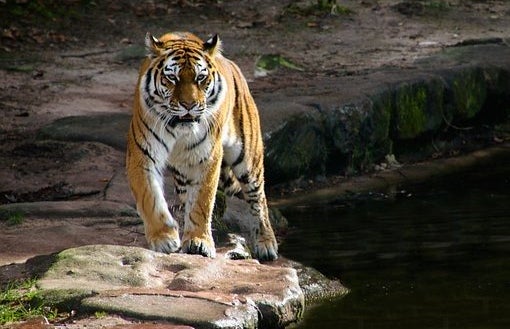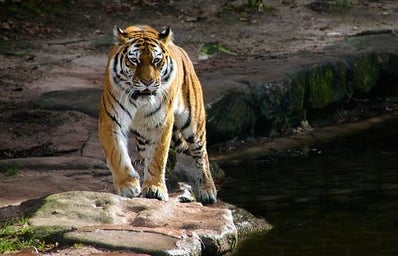In my freshman year, I enrolled in a course that I believe everyone should experience, Animal Philosophy and Ethics. Appalachian specifically offered this course with a theme dubbed “The Human-Animal Bond.”
I’ll be honest, being a transfer student, it was one of the last classes left to choose as my first year required seminar. Nevertheless, I was excited to experience my first college course at Appalachian.
Although I had no specific expectations, I specifically remember thinking ‘I love animals, I would never hurt one. I have two dogs at home, this will be easy!’
This animal-lover complex of mine was immediately challenged upon our first lesson.
I quickly realized having this love for animals didn’t give me any type of advantage or specific knowledge. I wasn’t prepared to hear how our treatment towards animals raises a world of ethical concerns in different capacities.
Although the lessons were shocking, they encouraged me to engage in major self reflection, a valuable practice, of the keys to self improvement, and one of the reasons I believe every college student should take this course.
No matter your attitude towards animals, it can’t be denied that we have always lived with and worked alongside them. Most of humanity’s actions and decisions not only affect us, but animals as well.
By taking Animal Philosophy & Ethics, you will explore the bond we have with animals and how our lives affect each other.
I could go on and on about this subject and my experiences, but instead I’ll include a few of what I believe are the most valuable lessons surrounding our views and treatment of animals, and the topics that led me to carry ideas from the course with me forever.
In Animal Philosophy & Ethics, you’ll review and discuss works researching dilemmas of captivity, animals in the wild, speciesism, eating animals, experimenting with animals, and other interesting topics involving our moral obligations to them.
Over the years, I’ve learned that there really is no general agreement about our connection to animals and how we should treat them. But the fact is, animals all around the world are experiencing unnecessary suffering due to human interference and exploitation in the realms of entertainment, medicine, fashion, food, and science.
Based on these categories, you can see that human interference presents itself in just about everything. You probably grew up eating meat, wearing leather, attending the circus, or taking trips to the zoo. I too grew up participating in some of these activities, but not without the fleeting thoughts of: How is this food made? Where did this circus bear come from? Is that enclosure really big enough for a lion?
Before, it was almost like I knew the answers to these questions, I just didn’t want to acknowledge the horrible truths about what they meant for the animals’ lives. My empathy was present for a short moment, but it didn’t expand past those questions until I took Animal Philosophy & Ethics.
The types of activities I mentioned reinforce human exceptionalism, the idea that humans are a uniquely superior species, and that we do not have an ethical responsibility to animals, something continuously discussed in the course.
Surely we are different from other animals, but in exactly what ways? In Animal Philosophy & Ethics, you’ll learn about how we do or do not differ from them, and what that means for our society.
A hot topic surrounding human exceptionalism is the debate over whether or not animals have consciousness, and if they can experience emotion.
If you’ve ever kept an animal as a pet, you’d probably say that they can absolutely feel emotion. You might even consider them a part of the family. You know what makes them happy, sad, afraid, or angry. But what do you think about the animals you don’t connect with every day?
There are many myths about emotional experiences in other nonhuman animals, particularly the animals we consume. Many people believe that animals such as cows or pigs are not intelligent, and that they are incapable of experiencing emotion.
In an Animals & Ethics class, you’ll learn and see examples of these animals, showing that they are just as or more intelligent than dogs, small children, and some primates!
Most farm animals have proven to be capable of reasoning, showing empathy, and memorization, yet thinking of them in a similar way to dogs, cats, or small children seems to be a hard task for most people.
Although the purpose of this piece is not to highlight the most gruesome side of animal cruelty, it is important and necessary to discuss because it is the reality of the animals we are mentioning, and something that forced me into self reflection.
A factory farm for example, also known as a Concentrated Animal Feeding Operation (CAFO), confines thousands, sometimes hundreds of thousands of animals in extremely cramped, disgusting, and unbearable conditions. Even if your packaged meat comes with a ‘humanely raised’ stamp of approval, there is nothing humane about the conditions these animals are subjected to. The dairy industry profits from continuously (and forcefully) impregnating female cows, taking their milk, and ripping their calves away from them. In the meat industry, the male cows are sent off to become veal and are slaughtered around six months of age.
No matter the type, animals that are raised for the sole purpose of consumption are often slaughtered within months of being born. For example, a pig’s natural life span is about twenty years, but in factory farms, they’re alive for about six to seven months. When taking this course, you’ll learn even more about what goes on in factory farming and it’s ugly truths, which are more horrifying than I’m able to fit into one piece.
With the science and research we have available today, it seems pretty ridiculous that someone could deny animal sentience. However, you’ll learn that our society might deny these ideas for their own well-being.
To put it plainly, people do not want to consider all nonhuman animals to be conscious or capable of emotion because it makes it easier for them to do things to the animals that would be hard to do if we knew they were unhappy and suffering.
It’s easy to disconnect with these horrors, considering you probably don’t visit zoos or factory farms every day, witness what they do to animals in experimental research, or happen to come across illegal animal trading.
This disconnect is not completely your fault. Corporations don’t exactly want everyone to know what goes on behind the scenes.Whether it’s a zoo, a circus, or a factory farm, keeping animals in captivity does serious and heartbreaking damage to their mental and physical health.
Maybe you’ve seen the hit series “Tiger King” on Netflix. You probably weren’t focused on the different animals’ well-being throughout the film, instead focused on the outrageous feud between two crazy people wanting to trap as many big cats as they could. The tragic revelation that Joe shot and killed five of the tigers at his ‘enclosure’, was just one example of the horrors behind animal captivity and illegal animal trade.
Learning about the truths that surround animal consumption and animal captivity were some of the most shocking and impactful lessons that forced me to reconsider my lifestyle choices, but many are still unaware of the horrible conditions most animals are subjected to every day. It wasn’t until the 1970’s that animal ethics was considered by philosophers and other theorists, providing us with the modern day animal rights movement.
Again, our connection to animals raises questions that intersect in different areas of life. Raising animals for food accounts for nearly fifteen percent of global greenhouse gasses emitted each year, with some research reporting more than fifty percent. As we continue to battle climate change and global warming, this is a topic that can no longer be ignored.
These are all things I’ve learned from taking this course here at Appalachian. You will be able to examine controversies over our treatment towards animals, philosophical and scientific debates, and discuss your own opinions and beliefs. So, consider taking Animal Philosophy & Ethics in order to explore how we can build a more humane and healthy world.


